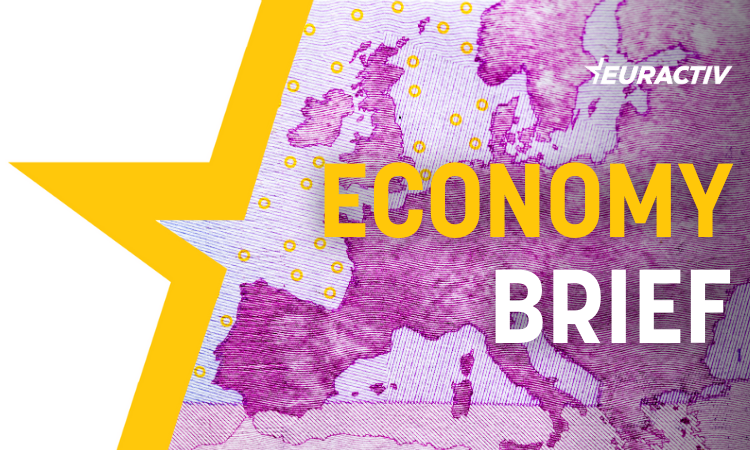
As widely anticipated, the week was dominated by trade tariff headlines.
Two of the European Commission’s top officials – trade chief Valdis Dombrovskis and vice president Margaritis Schinas – coordinated the EU executive’s announcement on Wednesday (12 June) of preliminary duties of between 17.4% and 38.1% on Chinese electric cars, with the rate varying also based on how collaborative companies have proved during the Commission’s seven-month-long anti-subsidy investigation.
Analysts widely believe that Chinese companies could absorb the announced EU duties and still maintain healthy profits.
What was slightly more surprising, thus, was that China’s reaction to the EU’s announcement of provisional and relatively manageable duties was, at least in terms of narrative, as harsh as that to the previous US’s announcement a month earlier. In that instance, President Joe Biden had revealed a much more significant tariff increase, raising duties on Chinese electric vehicles from 25% to 100%, alongside steep hikes on a range of other products.
Moreover, the EU’s approach to rebalancing what it saw as a vexing competition distortion differed greatly from the US’s strategy – with the former opting for an evidence-based assessment and ad-hoc, provisional requests for the different companies involved.
The US, on the other hand, opted for a less nuanced and more aggressive on-the-spot announcement of across-the-board tariff increases.
And yet, the two announcements seem to have provoked a comparable response from China: a strong condemnation, from the Ministry of Commerce, of the respective decisions, their underlying motives and the methods – paired up with slightly vague mentions of possible breaches to WTO rules, accusations of unfair protectionism and calls to take a step back and think twice.
The reason why two very different moves seemingly prompted a very similar response may be that China’s strategy on its trade relation with the EU could be hinging on objectives that contrast starkly with its stance towards the US.
In the case of EU-China relations, if one considers the Commission’s language over the past few months (emphasising the importance of safeguarding the international WTO rule-based system and open trade relationships) as well as what’s at stake for China (a vital and very profitable export market, as well as equally profitable business ventures with German carmakers), the feeling is that the two blocs are fully aware of their mutual need to maintain friendly trade relations, and are equally intending to do so.
This means that, despite the language of the two Commissioners this week, and the yet more peremptory response received by China, the two blocs may be onto something less antagonistic despite what this week’s events would lead us to assume.
That is, coming out strongly – rhetorically – against the other’s unfair practices was the politically most appealing choice for both – to signal their high conviction in defending their domestic industries – while at the same time not punishing – materially – their bilateral business ties.
Besides, as we had reported last week, EU analysts had expected this week’s announcement may have been mostly intended to be an “opening bid” for what was really the main objective for both the EU and China: starting negotiations to reach a deal that would mostly preempt the need for prohibitive and punitive trade measures.
If that’s the case, what we’re seeing unfold – the back and forth of action and reaction that seems akin to the opening salvos to a trade war – may in reality be a mutually-agreed and pre-staged act of political posturing that both parties see as politically and rhetorically convenient – when in fact, more amicable and business-minded negotiations might have already started in the background.
Economy News Weekly Roundup
EU tariffs on China too low to protect Europe’s car industry, says former top US trade official. Former General Counsel of the Office of the United States Trade Representative Greta Peisch told Euractiv that the duties—which range from 17.4% to 38.1% and go on top of the existing 10% tariff—are insufficient to “counteract” the hefty levels of state support Chinese EV manufacturers typically receive at all levels of the production process. “I think you could anticipate that those vehicles could continue coming in and being sold at essentially the same price today and continuing to take market share away from the European brand producers in the EU,” Peisch said. Her comments were echoed by European experts, who noted that the new tariffs suggest that the EU’s China policy is becoming more aligned with the US’s. Read more.
European Commission dismisses Chinese businesses’ allegations of malpractice during EV anti-subsidy probe. “All actions taken by the Commission as part of this investigation have been fully in line with applicable EU and WTO standards,” European Commission spokesperson for trade, Olof Gill, told Euractiv on Thursday (13 June). Gill’s comments came the day after China’s Chamber of Commerce alleged that “several enterprises and stakeholders have reported misuse of investigative power and misconduct by the [Commission] during the investigation”. Read more.







